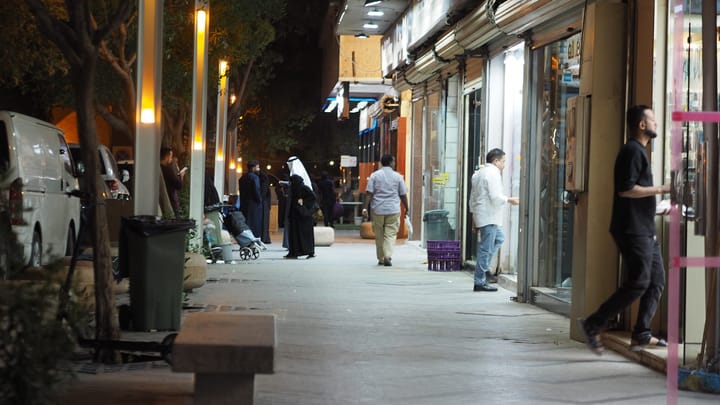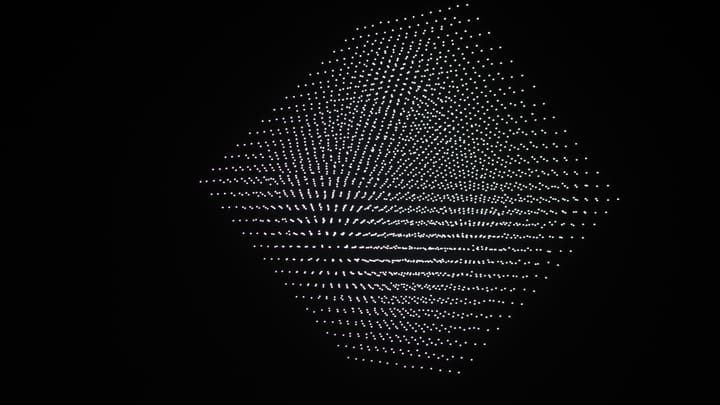Minus workshop 7, part 2: gesture, with some notes on the transindividual, sarx, pneuma & logos
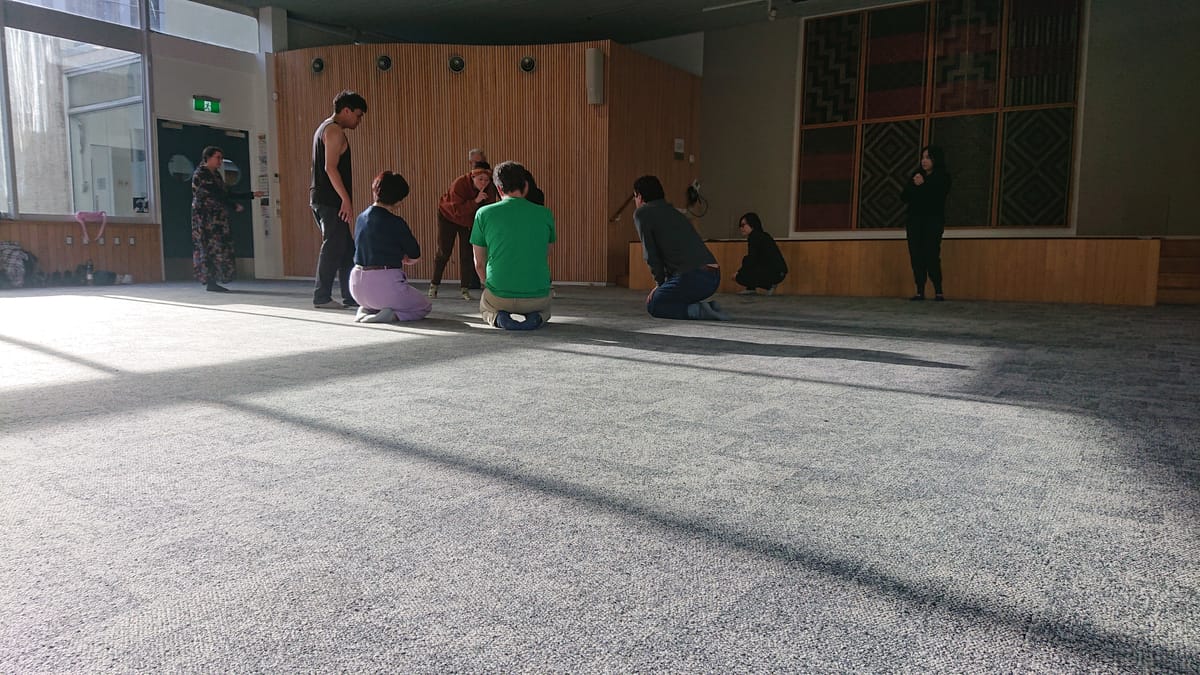
Ricky, Nick, Chen, Chenby, Mike, Alex, Rachel, through Ricky's recommendation, Ann, Kwan and Yuka from about 4.30: I talked too much but explained the notion of gesture, its double constraint, the one I impose by asking you to put the actor's gesture who leads the scene into your body, embodying that world as far as possible, sharing that space, the one imposed by your body's agreement with, extending its sphere of action, or disagreement with, shutting it down, all that is associated with the gesture, and its serious work of stretching the actor. By the end something had definitely clicked. Nick asked if I'd put his initial comments in my blog. In particular he travelled a great distance, covered a lot of ground, with a combination of fearlessness and vulnerability.
Strange to be returned to talking about exercises in view of what Minus does. And to be brought back to the idea of pleasing someone. I am pleased by being presented with problems which exercise me (most in formulating them!). This sense of exercise in view of Minus I acknowledge: what exercises it.
Yuka too finally found herself coming in from the periphery where she has for some time been stuck to the middle of the scene. I talked also about creative encounter, what happens when you meet and hold eye contact with someone: it's like, as Lingis says, being called by name. You have to answer for yourself. Difficult to refuse your name. You stand up for it. You answer on behalf of it. You are called on. Yes, this only occurs to me as I write this, but the eye contact I demonstrated is not this.
I demonstrated it meeting and holding eye contact with Kwan and then Nick. Because she had to laugh, I said that this is usually the result, you have to release the tension. Then, if you come back into it—what? That space I suppose, this situation that exercises you. A problematic space. If you get back into it what can come out of it has to be authentic, authentic movement as it's called in dance. Why?
Because it's like being called out and called on to answer for yourself. Or is it that it should be taken that way? Perhaps we should try this in the next workshop.
Rachel couldn't get into her life-story but it started well, with a kind of birth and a tight-rope walk. If only I could have reminded her of Zarathustra, perhaps that would have helped. The meaning of that scene at the beginning of Thus Spake is something Simondon is very hot on, from it he draws out the notion of the transindividual.
Zarathustra returns to his height, and depth, since it is a cave he withdraws to, in the mountains. And there he recreates himself. He wasn't such a hit in society, at the market, so he has to do something. He has to be alone. From being alone he takes the next step in his individuation, in becoming who he is.
Interpretations differ on what the transindividual is. I think of it as the struggle between and amongst all the ones one is. Each claims to answer in our name; but the contestation is unnecessary. What is needed is recognition that we are multiple, we are communities. And so transindividual follows psychic and social individuations not as their grand synthesis—now all the competing claims can be settled—as that jostling of identities from which one acts.
In fact, Simondon calls the living being a theatre of individuation. From the present point of view this jostling is of characters and occurs onstage. Transindividual names the community one is that, to repeat Lingis, has nothing in common, so—contradiction.
No consistency to be arrived at, except that this is where things happen—the working space: a question of getting the competing social and psychic interests up on stage, onto the plane of consistency. Simondon's thinking on the transindividual, in this view of there being a struggle between and amongst conflicting psychic and social interests and impulses, drives, which we both unconscious of and conscious of, drove, so to speak, Minus at the beginning.
I was walking this morning, I looked up, a blackbird sat on the wire, at first I thought it was a Kingfisher, so I made some squeaky noises at it, then I realised it was a blackbird. It looked down at me and, as if taking fright, took flight. I thought, Yes, that's right. To you we are giants and predators... Then I thought, What do birds think of us? And as quickly dismissed the question because I'd wanted to put thought as we understand it into bird brains. However, I thought, or the thought boomeranged back at me, What do we think of each other?
Do we ever? I mean we're constantly describing each other to ourselves and our friends. She's fat, he's ugly. They're young, they're old. It's said in love we suspend judgements like this. And Eleanor Roosevelt said, We wouldn't worry so much about what other people think of us if we realised how seldom they do.
I worked with a Malaysian guy in Sydney at Darlinghurst Espresso. He was in love with an Australian girl. He turned to me once and said, All these people! It was a busy place. All these people, to me they are only shadows. She is the only one who is real to me.
Are we ever really thinking about others? Look at this:
... especially people who care about strangers, who care about evil and social injustice, do you only care about the bleeding crowd? how about a needing friend, I need a friend ...
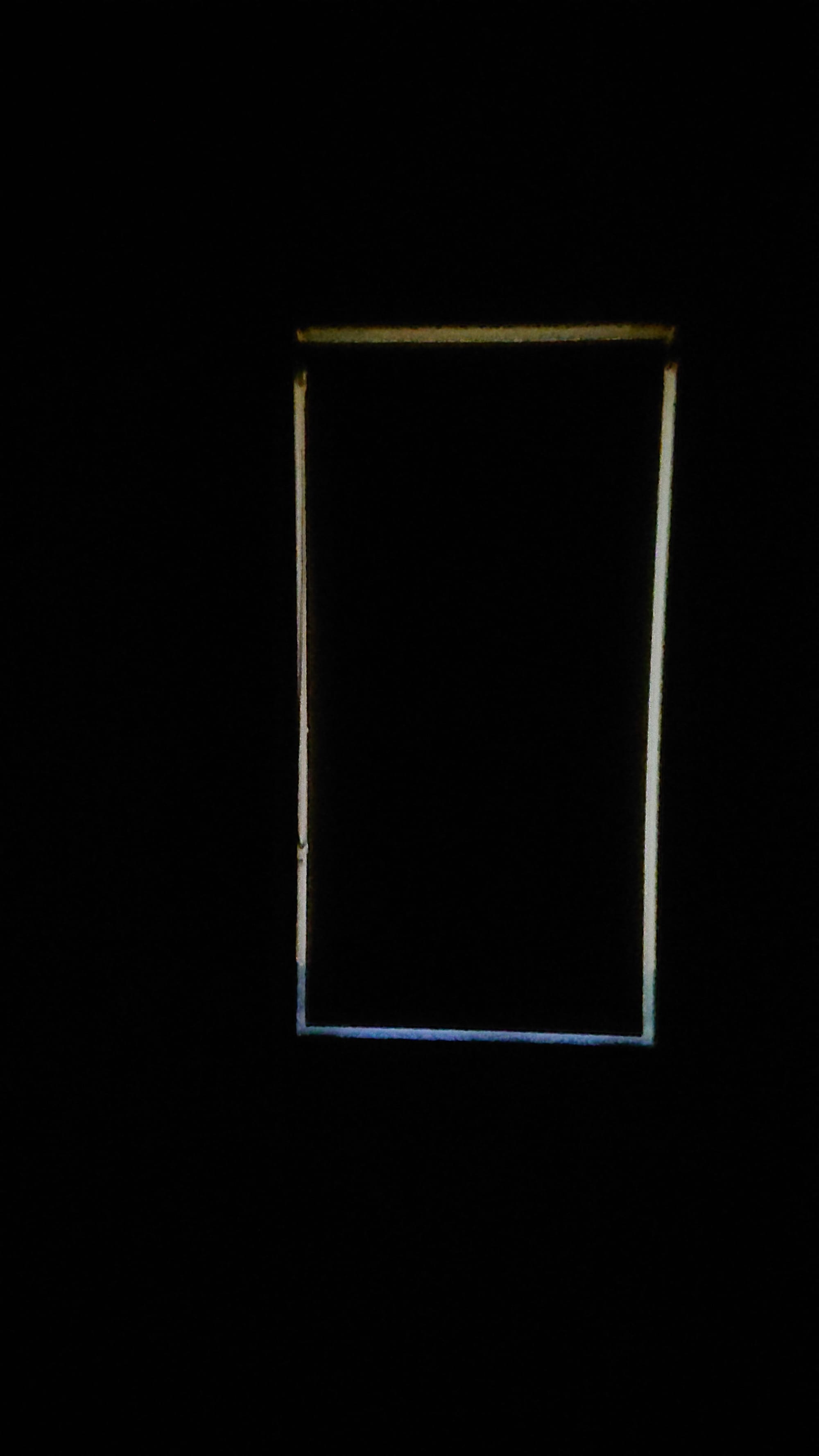
In this new time of genocide, and of fascism ... My friends and I, I say of Minus. The stage is described, the working space, at least in the form of theatre we practice, both as a place of suspended judgement and suspended expression, expression meaning the gestures of the body and of language with which the actors work in time. These elements of this form of theatre do not constitute other people, or maintain other characters, are not others. Equally, through the intercession of the stage, they are not ours, our gestures. At least we don't and often can't recognise ourselves in them.
At this workshop I said of the creative encounter—which I must repeat is not a relation, there are no relations formed in the transindividual because there's no space for there to be relations! I cannot step outside myself and, say, form a relationship between one I and an I who is me but to a lesser or greater extent. In fact, we have here an interpenetration of elements or of characteristics like Bergson observes in the virtual multiplicity of time, duration. I said, it's not as if we can sit down and have tea with each other!
I was ruing the improv tendency to agreement. If I nod at you and make gestures for you to take this imaginary object, you will assent. Because that's the rule. Accept the offer!
It's not as if we can do this in the transindividual. And I just said, elements or characteristics; what I said in the workshop was, These are not people! So, are there characters in Minus?
Characters are what we might call out or call on by name. Eye contact in the encounter, which is when I suggested we be most generous with time, does produce a character, and not out of nothing, out of the jostling and sometimes chaotic and sometimes calm but always heterogeneous mixture of characters who are, which are our psychic and social selves, with their interests and drives, both unconscious and conscious. Then, why not?
What would a name do? what does a name do? Pessoa with his heteronyms made this perception in poetry. He called the poets whose names he wrote under by their names and said, this one, I forget which, this one is me but with all emotional connection stripped out; while this one, he operates solely on the emotional level. Pessoa had around 70 of these heteronyms, separate people, to whom he gave biographies and different interests. Lao Tzu(6th century BCE)—
Watch your thoughts, they become your words;
watch your words, they become your actions;
watch your actions, they become your habits;
watch your habits, they become your character;
watch your character, it becomes your destiny.
One, a Futurist, one, a classicist. An engineer. Not all of them poets. Was this, is this schizophrenia?
Not in the sense of it being pathological, a sickness, although poetry and other artistic compulsions can take you like a sickness. Or a sickness is the cure for them, like the relationship between alcohol and writing.
Deleuze and Guattari address this, although I don't think they ever mention the transindividual, in schizoanalysis (in the English edition of Anti-Oedipus, 1984 (French edition 1972), there is no mention of Simondon in the index). I have explained schizoanalysis to myself as a social or group form of analysis; it is also individual but as transindividual, an inner group on whom it is not incumbent to agree. Some of Pessoa's 'characters' do not relate to each other at all (again with the relations that are spatial and social!).
In the passage from psychic individuation to social individuation, and from social individuation (and the transpersonalism of interacting with others, interindividuation) to the transindividual it's possible to see a parallel with the analytical model developing from psychoanalysis to group analysis (at La Borde for example, where we can read its founder Jean Oury say, in a sentiment endorsed by Guattari, madness is a human right worth fighting for (source)), and from group analysis to schizoanalysis. The schiz usefully has the cut, that the stage also brings, to remove relations, allowing their proliferation outside of the structures and strictures of society and of those belonging to any spatial organisation of people which decides what is normal, what a normal person is, and judges them.
Schizoanalysis could well be said of the transindividual. Like the stage the schiz frees what is personal to belong to anybody and to be available to imaginative transformation, to be impersonal and at once not. Like the transindividual.
Where I started from with Minus was with the idea of distributing a person's body, not through literally cutting them up, but by putting the movement of the legs that is theirs over there, the looking of the eyes that is theirs over here, in a distribution not held together by the voice that is theirs. Not yet. But we can already see how distribution of bodies might lead to distributions of languages, in Minus's case, of first languages spoken by the group.
Merleau-Ponty's 'flesh' is not adequate to being pulled apart like this. A flesh that we share with the world, it countermands the body's, perforce the human body's, centrality to that world. It goes against Bergson's body as a centre of action first, and all that this brings, including human exceptionalism and anthropocentrism. For Minus I invoked instead the sarx and the sarcous, terms which exist, that are biblical. Paul uses sarx for its contrast with pneuma, breath, with which for him it is in opposition: sarcous (the more common English word) describes the totality of living beings; while he identifies breath, pneuma, with the spirit, and it is this spirit which forms the Word, Logos, so names the way to get there.
The radical discontinuity isn't between body and soul but sarx and pneuma. From the sarcous body originates evil, but only potentially, and only against the pneuma, breath-spirit, the origin of logos, which in Greek goes further than either logic, reason or language, including them. So it names a sort of way too, one, after David Abram's The Spell of the Sensuous, 1996, that connects for me to the written word, that is only full of breath—unlike Hebrew, having the vowels and thus containing all the elements of sensuous language, all the information—at the time, 5th century BCE, Plato was writing his dialogues. What differentiates Socrates' method from Plato's is that his was oral and not written.
Abram accounts for the contents of Plato's Socratic Dialogues by drawing attention to the abstraction the breathing word on the page allows. Socrates' own dialogues he contends might have proceeded by example, just is the man who ... and good the woman who ..., whereas for Plato the question becomes, What is Justice? and what good? The word written presents for the first time the isolation of the concept, both 'out of breath' and also 'out of time,' the flowing time of Heraclitus, the time of the living and breathing, for example.
In Blanchot we get closest to this out-of-breath. As soon as I write I am dead. Because as soon as you read I am. I am not because you are. (You might say there's a quantum relation here, an undecidable. The writer is Schrödinger's cat.)
My emphasis has changed from earlier Minus. There I was concerned with the space, now I am concerned with how the social relation, all the way from that between two people up to the organisation of societies and civilisation, creates space. Hence the generosity of time required by the creative encounter. What happens there is space becoming out of time.
Something however remains of this tension Paul finds between breath and word and living moving body. Oh, I should complete that thought: sarx is adequate to the virtual multiplicity of duration, unlike flesh, because unlike flesh it is discontinuous and already distributed in the heterogeneity of living beings, in the totality of life. Then the thought I have now is not of time being the differentiator but spirit and more exactly breath, in the spoken word. Because this has become a practical difficulty in present Minus; and it is there in the question I raised earlier about the difference between being called upon by name and eye contact between actors: movement is easy, speech is hard.
Most of the sessions of Minus, doing thief or permutations of it, have been conducted in near silence. I have encouraged people, use your voice! and suggested that what a scene may have needed was sound, the sound of voices, when what I meant was your voice, let alone the problem of what you are saying. We've usually said, Say what you are doing.
If you are walking and English is your first language, say I walk. Avoid the 'I am' because it prolongs being into the action and the action becomes generalised and abstract. I am walking is not the same as I walk. I walk is what I am doing as I live and breathe.
Say what you do also avoids the potential barrier of, Just say anything!
What if I can't think of anything to say? And if I'm thinking of what I have to say I am doing that rather than doing what I am doing. I do not. I think.
The voice in the Hebraic tradition is the where the individual spirit is. Earlier Minus this is precisely why I said, if English is not your first language, use your first language. And, we are not using language to communicate but as a gesture of the body. Still, you can see, there is a problem. The individual's voice speaking is not the same as the individual's body moving. Does the difference connect to that other direction, Steal the gesture of the one who leads the scene whether that gesture is conscious or unconscious? In what I say is supposed to reside consciousness.
All these considerations I will leave hanging for now, although I had wanted to bring together transindividual with Deleuze and Guattari's machines at the beginning of Anti-Oedipus because there is something, I've caught an idea of out the side of my mind, to do with Simondon's example of the Guimbal turbine, the elements of which only fit perfectly once they have been brought into relation, the water cooling the movement, the oil held under pressure by the water outside. . . And, I admit, I have been sidetracked by the voice-body problem, or side-swiped, since I was inserting the decisive difference in perceptual attributes between biological body, sarx, and the set of memorial associations that make up the I, the body having its own ideas about what it can and can't do. Now I have, well, I will later, to take up this spirit-word-breath-conscousness problem.
Where did we get to in the workshop? Zarathustra. Walking the high-wire. Above the crowd... retreating to the mountain cave. The friend, the dwarf, buried in grief and Edwin Frank writing in Stranger than Fiction: Lives of the Twentieth Century Novel, 2024, page 330, "art begins by giving form to grief, allowing us to express it and transcend it." This is a conservation of form as I discussed it in Minus workshop 7, part 1: naturalism / gesture (which in view of Blanchot is at the same time a death warrant) and also points forward to the subject I've proposed to myself for the next workshop, shape.
For the greater part of the workshop we produced scenes where the one leading took the prompt from Loren Eiseley:
The house lies on the edge of a rolling plain. It is an old, warm farmhouse where people rock on the porch in the starry evenings. There is no shadow on it; it is lived in, complete, normal. But it has a cellar, and that cellar has a monster in it. Or something that gives you the same feeling as a monster.
—The Night Country, 1971, p. 16
Nick took the prompt, said hi to the occupants of the house, descended to the cellar, felt in his pockets for the key, and discovering it, opened its door. And screamed. I suggested that that was when the scene, because upon screaming he left it, should have started.
Rachel took the prompt, as an occupant of the house, doing the dishes. Something was there. Was she going to go and look? No. She went back to the kitchen and did some baking. It was nice and developed into an interesting scene, but no monster. I said that in the scene Eiseley describes it's even worse than there being a monster.
Monsters are easy, the feeling, even in the absence of a monster there is one, is hard, terrifying.
Chenby after Rachel left her high-wire took the prompt. Earlier she'd said something very interesting to me. She said, Eiseley's monster being imaginary marked a new and different starting-point for us for creating a scene.
Usually, it's a your-story kind of start, from a memory or an intense experience.
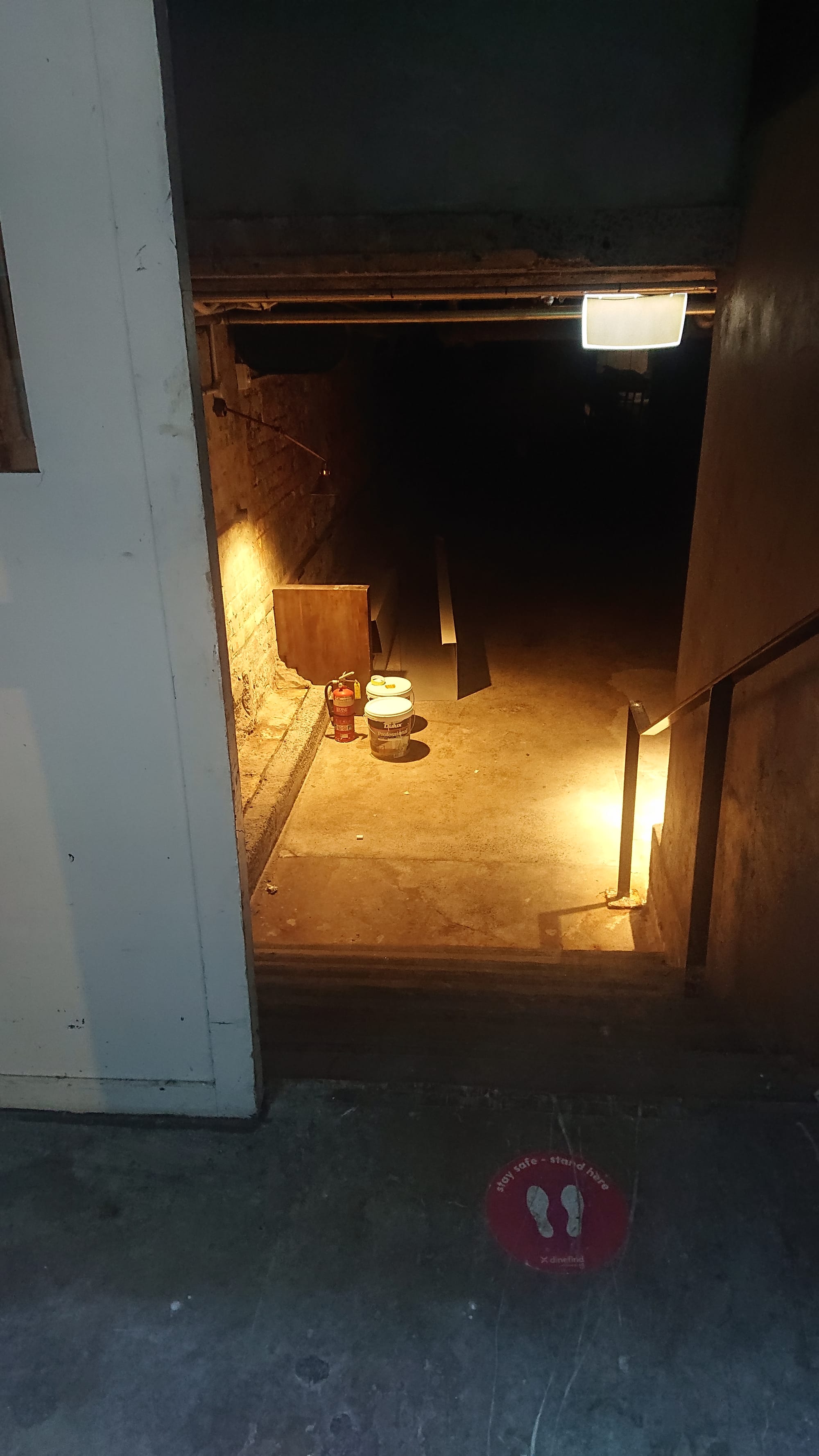
It was interesting because it's not at all the way I'd been thinking about it. I had thought of the Eiseley as leading to the same place, a memory or an intense experience, down to the cellar, that has a monster, or something that gives you the same feeling as a monster, something worse, something undecidable.

